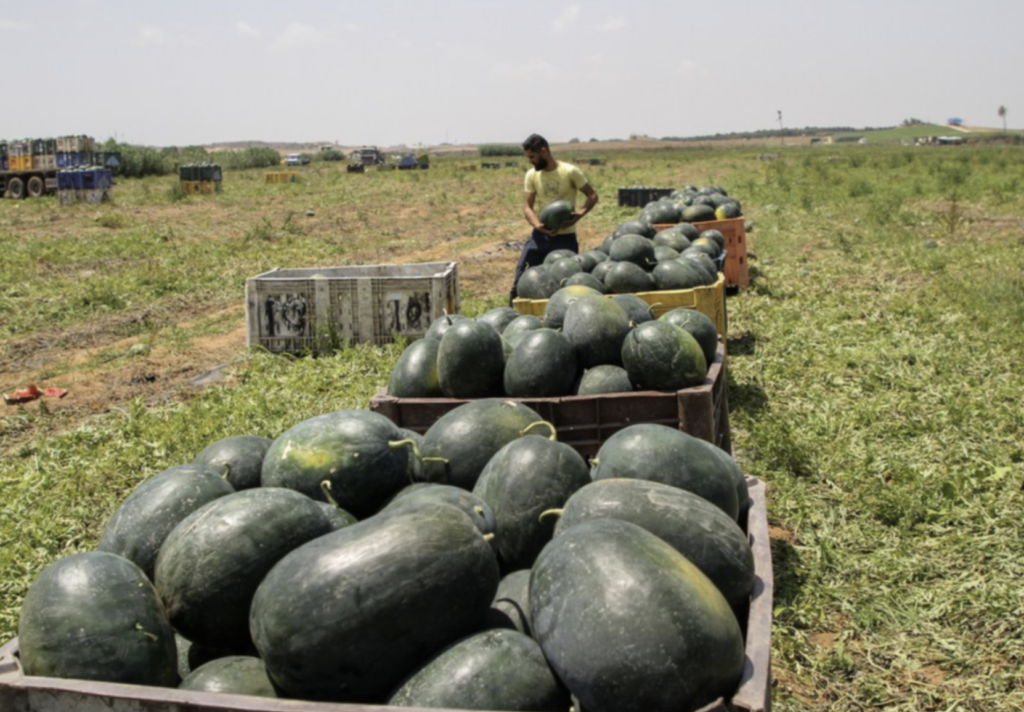The Symbolism of Watermelon in Palestinian Struggle

By: Ziyan Qutub / Arab American Contributing Writer
In the rich tapestry of symbolism woven by oppressed communities, the watermelon has emerged as a poignant emblem within the Palestinian struggle. Beyond its mere status as a delectable fruit, the watermelon bears profound cultural and historical significance, acting as a powerful symbol of resistance against the backdrop of the Palestinian quest for self-determination. This exploration delves into the layers of symbolism embedded in the watermelon, unraveling its historical roots, cultural importance, and transformative role as a tool of defiance.
Historical Roots

The symbolic journey of the watermelon within Palestinian resistance finds its origins in the struggles of displacement and dispossession. Facing the challenges of losing their homeland, Palestinians embraced the fruit as a symbol of sustenance and survival. The cultivation and communal sharing of watermelons became a tangible testament to the resilience of a people determined not only to endure but to thrive despite the adversity imposed upon them.
Cultural Relevance

Within Palestinian culture, the watermelon transcends its role as a refreshing fruit to become a symbol of communal strength and endurance. The act of cultivating and sharing watermelons fosters a profound sense of unity, providing a space where individuals find solace and connection amidst the relentless challenges of occupation. The simple act of breaking bread, or in this case, sharing watermelon, transforms into a powerful expression of solidarity, countering attempts to fragment and divide the Palestinian people.
Similar to negative stereotypes perpetuated in other contexts, Palestinians have confronted derogatory depictions aimed at undermining their struggle for self-determination. By embracing the watermelon as a symbol of resistance, Palestinians actively challenge these harmful stereotypes, transforming a seemingly ordinary fruit into a potent tool of defiance. The cultivation and sharing of watermelons become acts of identity affirmation, pride, and resistance against attempts to marginalize and dehumanize.
Cultural Celebration

The watermelon serves not only as a symbol of resistance but also as a cultural icon, evoking memories of the Palestinian landscape and traditional farming practices. Amidst a landscape marked by conflict and occupation, the cultivation and enjoyment of watermelons become a celebration of Palestinian heritage. The fruit becomes a tangible link to the land, a reminder of the agricultural richness that predates the challenges imposed upon the Palestinian people.
Artistic Expression
The watermelon has found its way into Palestinian art and literature, evolving into a recurring motif that transcends its culinary origin. Artists utilize the image of the watermelon to convey messages of resistance, resilience and hope. It becomes a symbol deeply resonant with the Palestinian collective consciousness, representing a connection to the land and a resolute refusal to be erased from history.
In the Palestinian narrative, the watermelon transcends its status as a mere fruit; it stands as an emblem of resistance, resilience, and cultural pride. From its historical roots in the face of displacement to its role in challenging stereotypes and fostering unity, the watermelon emerges as a powerful symbol in the ongoing struggle for Palestinian self-determination. In the face of adversity, the watermelon becomes a testament to the strength of a people who, much like the seeds within the fruit, refuse to be eradicated and continue to grow against all odds. Through its symbolic journey, the watermelon remains a vibrant expression of Palestinian resistance, a testament to a people’s unwavering spirit in the pursuit of justice and self-determination.
Check out Arab America’s blog here!








